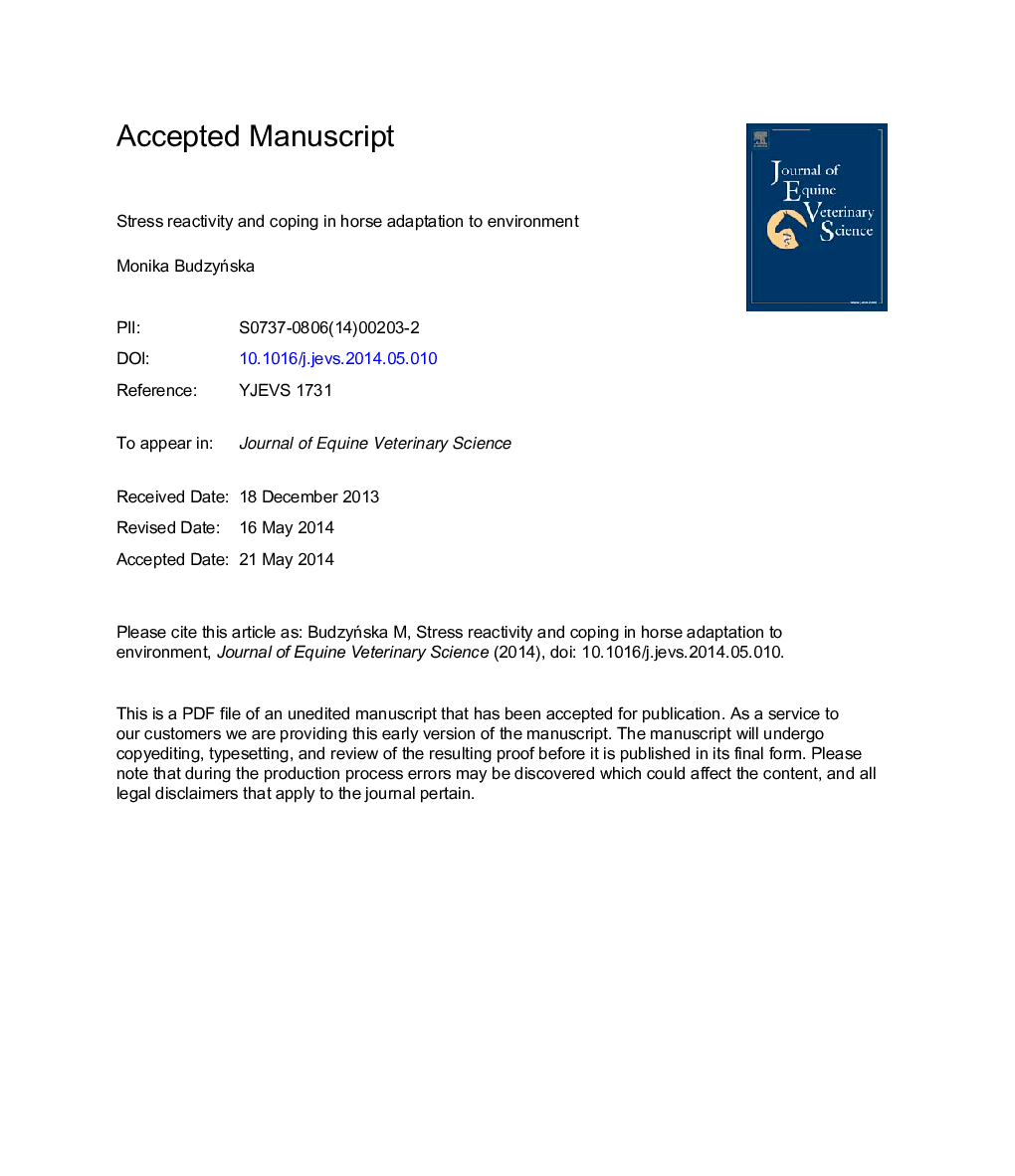| Article ID | Journal | Published Year | Pages | File Type |
|---|---|---|---|---|
| 10961369 | Journal of Equine Veterinary Science | 2014 | 27 Pages |
Abstract
“Coping” or “coping strategy”, defined as the behavioral and physiological efforts of animal to master the situation, is more and more in interest of researchers dealing with applied animal behavior and welfare. Knowledge about “coping styles” may be helpful in understanding individual adaptive capacity to stressful events. At least two types of animal coping strategy (or coping style) can be involved: (1) active copers (proactive) and (2) passive copers (reactive). The individual differences in stress response to threatening situations have been found in horses, and these animals can show specific coping strategies such as other species. This article reviews the set of behavioral, psychoneuroendocrine, and psychoneuroimmune mechanisms involved in animal adaptation to environmental challenges and discusses the relationship between behavioral and physiological factors involved in stress response of the horse. Exploring coping strategies in horses and in any captive animal can be successful when a multidimensional approach including behavioral, neural, hormonal, and hematological measures is considered. Knowledge on stress coping styles can provide valuable information to predict the behavior of individuals during response to specific challenging situations. Moreover, assessing individual differences in adaptation strategies can be useful in horse selection to different exploitation tasks and reproduction.
Related Topics
Life Sciences
Agricultural and Biological Sciences
Animal Science and Zoology
Authors
Monika PhD, DSc,
